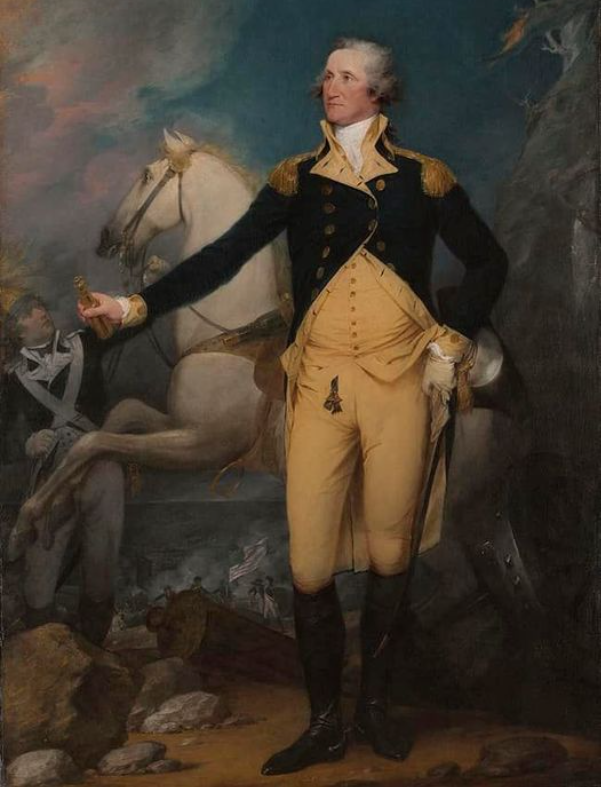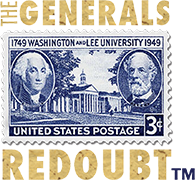The Faith of Washington

IN GOD WE TRUST
Motto of the United States
Although “In God We Trust” began appearing on some U.S. currency as early as the Civil War presidency of Abraham Lincoln, it was not officially adopted as the United States national motto until 1956, during the presidency of Dwight D. Eisenhower. Absent this factual history, however, one might have surmised that the motto originated with the presidency of George Washington, for whom its sentiment was basic to one of his deepest personal convictions: namely, that God is active in the affairs of men and that He assists righteous causes such as America had pursued in its struggle for independence from tyrannical British rule. The record abundantly attests that throughout his life Washington was marked by an unshakable faith in the God of the Bible, and his expressions of that faith are legion. They abound not only in his public addresses and official correspondence but also in his private letters to close friends, where posturing to the largely religious public of his day cannot be reasonably suspected — if ever it could be, given his inveterate abhorrence of dishonesty.
As early as his service as an officer of the Virginia militia during the French and Indian War, while still in twenties, Washington exults in the assurance of God’s personal care and protection in a letter written to his brother, dated July 18, 1755, in which he writes of being saved
. . . by the miraculous care of Providence, that protected me beyond all human expectation; I had 4 Bullets through my Coat, and two Horses shot under me, and yet escaped unhurt.
In a wider view and a correspondingly more sobering tone, after reverses early in the Revolutionary War, he writes to Bryan Fairfax on March 1, 1778, of a faith triumphant despite discouraging circumstances:
. . . The determinations of Providence are all ways wise; often inscrutable, and though its decrees appear to bear hard upon us at times it is nevertheless meant for gracious purposes.
. . . Providence has heretofore taken us up when all other means and hope seemed to be departing from us, in this I will confide.
Near the end of the war, during the complicated operation of coordinating with French ground and naval forces to face British General Cornwallis at Yorktown, he writes poignantly to John Armstrong on March 26, 1781, of his belief that
. . . Our affairs are brought to an awful crisis, that the hand of Providence, I trust, may be more conspicuous in our deliverance.
The many remarkable interpositions of the divine government. in the hours of our deepest distress and darkness, have been too luminous to suffer me to doubt the happy issue of the present contest.
Again, on November 15, 1781, soon after the surrender of Cornwallis, he wrote to Thomas McKean, regarding the Yorktown campaign, that
. . . the interposing Hand of Heaven in the various Instances of our extensive Preparations for this Operation, has been most conspicuous and remarkable.
But such exuberant faith in the power of God to orchestrate events did not, in Washington’s view, mean that men were exempt from the responsibility of sharing in that work as servants of God by participating in the accomplishment of His will on earth. They could not simply fold their hands, sit back, and “let God do it.” As early as August 7, 1776, at the outset of the Revolution, Washington wrote to Jonathan Trumbull that
. . . To trust altogether in the justice of our cause, without our own utmost exertions, would be tempting Providence.
And much later, writing to Benjamin Lincoln, August 28, 1788, he declares that
. . . I trust in that Providence, which has saved us in six troubles, yea in seven, to rescue us again from any imminent, though unseen, dangers. Nothing however, on our part ought to be left undone.
Washington’s faith blazed as brightly in the years immediately following the Revolutionary War, when his leadership was crucial in confronting the formidable challenge of molding thirteen fractious, bickering states into the kind of union essential both to their security from external threats and to their internal prosperity. In an April 20, 1789, letter to the mayor, etc., of Philadelphia he wrote, in thoughtful retrospection of the establishment of a federal government of sufficient authority and stability, that
. . . When I contemplate the interposition of Providence, as it was visibly manifested, in guiding us through the Revolution, in preparing us for the reception of a general government, and in conciliating the good will of the People of America towards one another after its adoption, I feel myself oppressed and almost overwhelmed with a sense of the divine munificence.
At his inauguration as president on April 30, 1789, he nevertheless annexes a word of warning regarding the future prospects of the United States, or of any country, by observing with the solemn conviction of a biblical prophet that in the absence of national righteousness divine favor cannot be expected:
. . . the propitious smiles of Heaven, can never be expected on a nation that disregards the eternal rules of order and right, which Heaven itself has ordained . . . .
As Washington entered the first term of his presidency in 1789, numerous of his letters contain earnest affirmations of a personal humility before God that has too rarely been seen in national heroes. In a letter addressed to the Synod of the Reformed Dutch Church of North America on October 9, 1789, he wrote:
. . . If such talents as I possess have been called into action by great events, and those events have terminated happily for our country, the glory should be ascribed to the manifest interposition of an overruling Providence.
And in the following, addressed to the Legislature of the State of Connecticut on October 17, 1789:
. . . I was but the humble Agent of a favouring Heaven, whose benign interference was so often manifested in our behalf, and to whom praise and victory alone are due.
In anticipation of his election to a second term as president, Washington, in characteristic terms, again confessed his trust in, and ongoing dependence upon God in an August 26, 1793, letter to the Attorney General, as follows:
. . . as the allwise disposer of events has hitherto watched over my steps, I trust that in the important one I may soon be called upon to take, he will mark the course so plainly, as that I cannot mistake the way.
A thoughtful individual usually arrives at some point in his life, whether in the quiet of study or in the tumult of events, when he ponders his existence, questioning why he is here, and to what purpose, if any; yearning to descry through the fog of his limited experience some clear meaning and direction, all the while aware that much, if not most of what affects him is beyond his personal control. Out of such reckoning was born George Washington’s faith in God, a faith unwaveringly steady and vividly manifested throughout his adult life. The four words of the United States motto perhaps capture that faith as well as any four words can.
The contemplation of Washington’s inspiring example should behoove us to move forward in the full spirit of his redoubtable faith as we continue the struggle to rescue W&L from the tyranny of Wokeism that has sought so ruthlessly to sully the characters and degrade the influence of its namesakes, actions nowhere more plainly on view than in the scrubbing of both men’s images from W&L diplomas, a deed unthinkable in past generations, but an accomplished disgrace in this.
Respectfully,
Kenneth G. Everett ’64
The Generals Redoubt
To receive your signed copy, please reply with your pledge, along with your name, mailing address, and phone number. Your contribution will support our ongoing efforts to sponsor speakers, programs, and other initiatives in Lexington that will advance our mission to preserve the history, traditions, and values that made W&L great. All contributions received between now and January 31, 2024 will be matched up to $400,000 by a group of generous supporters!
You may contribute via credit card at https://www.thegeneralsredoubt.us/support or check per information in italics below. WE NEED YOUR HELP! To donate by check please make payable to: The Generals Redoubt and mail to: The Generals Redoubt, P.O. Box 1097, Lexington, VA 24450. Thank you. The Generals Redoubt (TGR) is a non-partisan 501 (c) (3) organization that is not aligned with, nor supports, any political party, individual, or organization.
